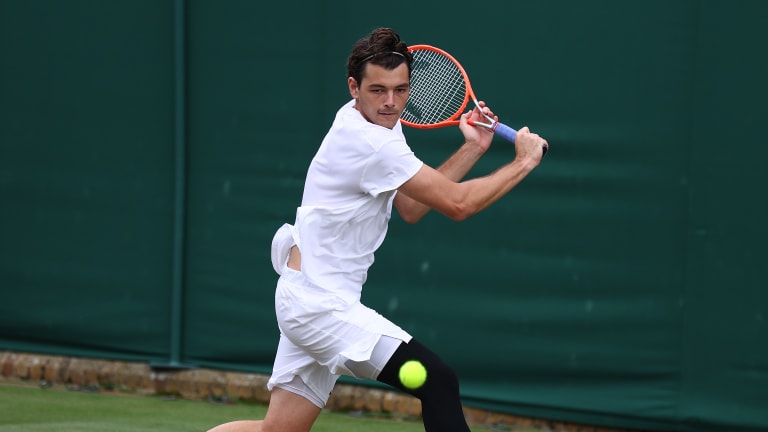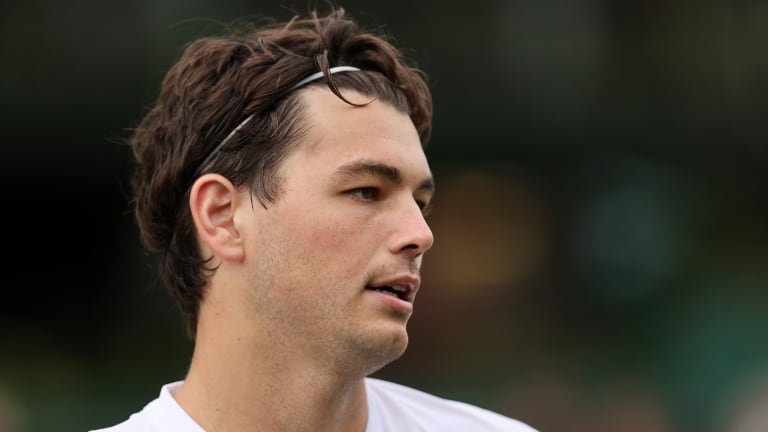Wimbledon
A leg up: Taylor Fritz redefining timelines following his June surgery
By Jul 01, 2021Wimbledon
Darren Cahill: Jannik Sinner watches more Carlos Alcaraz matches than he does with any other player
By Jul 14, 2025Wimbledon
Jannik Sinner reignites Carlos Alcaraz rivalry with Wimbledon victory
By Jul 14, 2025Wimbledon
Jannik Sinner reversed his usual pattern against Carlos Alcaraz. It won him Wimbledon
By Jul 14, 2025Wimbledon
Veronika Kudermetova and Elise Mertens win women's doubles title at Wimbledon
By Jul 13, 2025Wimbledon
Joy to the World: What Carlos Alcaraz has, and what we are enjoying
By Jul 13, 2025Wimbledon
Iga Swiatek keeps surprising herself after Wimbledon title caps "surreal" turnaround on grass
By Jul 12, 2025Wimbledon
Iga Swiatek wins first Wimbledon, sixth Grand Slam title with 6-0, 6-0 rout of Amanda Anisimova
By Jul 12, 2025Wimbledon
Wimbledon men's final preview: Will Carlos Alcaraz, Jannik Sinner share another epic?
By Jul 12, 2025Wimbledon
Julian Cash, Lloyd Glasspool become first all-British pair to win Wimbledon men's doubles title since 1936
By Jul 12, 2025A leg up: Taylor Fritz redefining timelines following his June surgery
Twenty-three days after a knee operation, the American is into the third round at Wimbledon. How long can he keep “this crazy run” going?
Published Jul 01, 2021
Advertising
Advertising

Competing in his 20th major main draw, Fritz is aiming to reach the round of 16 for the first time.
© 2021 Getty Images
Advertising

Against Top 10 opposition, Fritz is 6-20 lifetime (and 0-3 this season).
© Getty Images